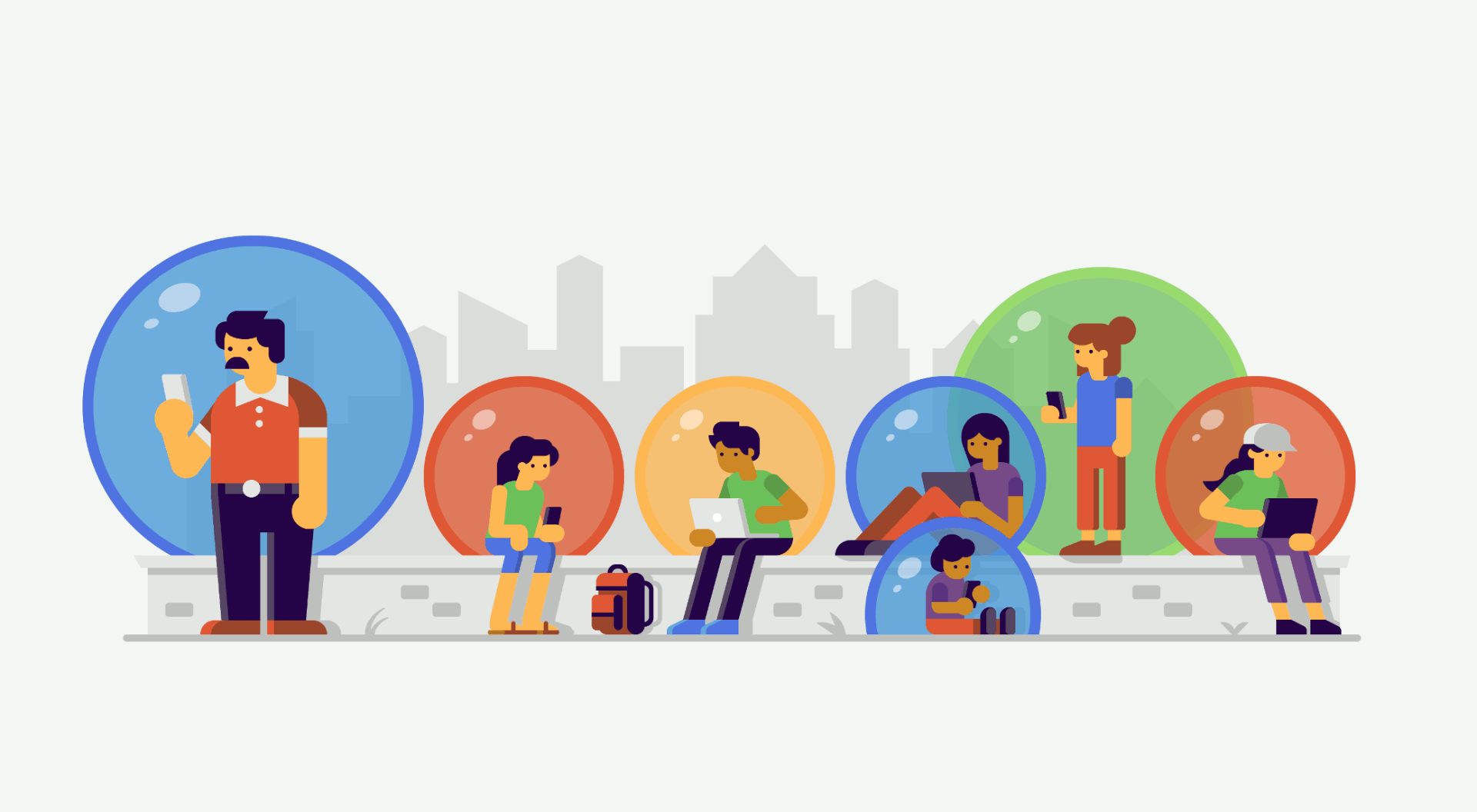Youtube, Netflix, Spotify – these are names we are all familiar with, but we often don’t stop to think how much the existence of this type of on-demand media has fundamentally changed the way we live our lives. We can now watch and listen to essentially unlimited content tailored to our specific interests. In this article we discuss how this has been a positive force in disseminating previously unheard voices and ideas, but has led to a filter bubble effect where our pre-existing views are amplified and often not challenged by the more varied range of content we consumed previously.
Unlimited bandwidth
Previously, airtime was limited by television or radio bandwidth – if you weren’t important enough to have a time slot, nobody heard what you had to say. But now, anyone has a platform with unlimited time and bandwidth. We can, if we so choose, listen to 12 hours of nothing but flat-earth conspiracy theories, and there is a platform and community of like-minded people to share the experience with. This has been an incredible change – and it is not just accessible to the elite, but can be accessed by anyone with an internet connection.
The filter bubble
However, people who consume a lot of on-demand content are often not exposed to a diverse range of content and ideas. It is not uncommon for a person to have a few channels that they watch regularly, and then to have an opinion on any given news story that is informed by what they have seen in those channels. Whereas previously we would have consumed news from a variety of sources such as the newspaper, the television and the radio, now we have a much more limited range of sources – essentially, the internet. This has been called the filter bubble effect and it has been studied by Eli Pariser in his book of the same name.
The filter bubble is the idea that we are presented with content that appeals to us and confirms our pre-existing beliefs, and that we have very little exposure to alternative viewpoints that would challenge our ideas. The internet has not created the filter bubble, but it has amplified it. It is an interesting phenomenon, and one that I am sure you have experienced personally. Perhaps you know someone who thinks that climate change is a hoax – do you think that they have ever watched a documentary about climate change? I doubt it. I doubt that they have ever watched a documentary at all, and if they have, it is highly unlikely that it was put together by a mainstream media outlet such as the BBC.
I started watching documentaries in my early teenage years – my first ever documentary was a film called The Ark about the USS Nimitz aircraft carrier, and I was hooked. I enjoyed the fact that I could learn about things that I was interested in, and that I could learn in an engaging way. Since then, I have watched a lot of documentaries, and I continue to enjoy them. The thing is, I now no longer have to worry about where to watch the latest documentaries – it’s all there at my fingertips. But is this a good thing?
Breaking the bubble
The importance of consuming a diverse range of media is largely self-evident. But how should we do it in the age of YouTube and TikTok? One solution is to sign out of your online profiles when you watch. This avoids Google and others from tracking your activity and recommending things based on your past viewing behaviour.
But this is no substitute for consuming a wide range of content from a wide range of sources. Be conscious of how you consume content. Consume media from as many different sources as possible. Try to vary your viewing habits – do you watch the same documentaries every night? Mix it up and watch something on your phone, watch something on your laptop, watch something on your television. Try to keep it varied and to keep it interesting.
One way to keep it varied is to use a streaming service such as Netflix in a more thoughtful way – watch the old episodes of a show you love, watch a documentary, watch a stand up special, watch a comedy special. Mix it up and watch a music video from an artist that you’ve never heard of, or you can watch a new episode of a show or even genre you usually don’t watch. This works especially well if it is a show that your friends are watching – you can watch it with them, and you can chat about it when you do. If you really don’t like it, you can always stop watching it! But if you do, you might be surprised at how much you like it!
We have a lot to learn from consuming a wide range of content that challenges us and informs us about things we don’t already know. Be open to new ideas. Be open to diversity. Break the filter bubble.
In summary, I am in no way suggesting that you should stop watching your favourite YouTube channel or your favourite podcast. I am merely suggesting that you should try to watch from a wider range of sources, just to make sure that you are not getting too comfortable in your bubble!
